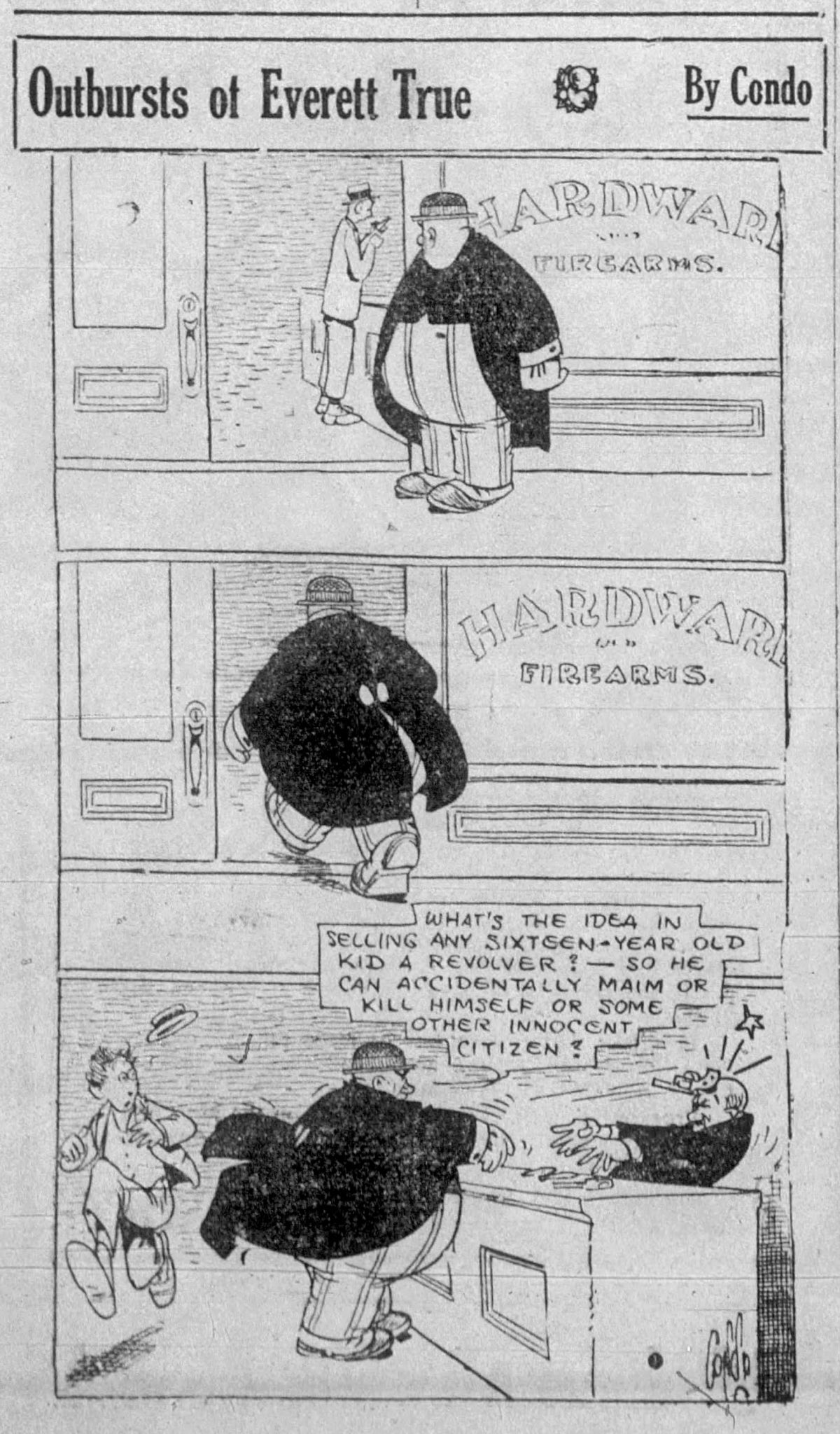this post was submitted on 26 Jul 2024
273 points (98.6% liked)
Everett True Comics
618 readers
87 users here now
A place to appreciate the twentieth century comic character Everett True of "The Outbursts of Everett True." Feel free to check out the sticky.
founded 1 month ago
MODERATORS
you are viewing a single comment's thread
view the rest of the comments
view the rest of the comments

I think people who lived in the 1900’s had a better sense of these things than you or I so I’ll go with the cartoonist on this one.
I mean, it isn't like there aren't a shit ton of us that knew people that were adults then.
And, yeah, at that time, most 16 year olds were being expected to take on adult roles. In rural areas, especially farm areas, everything the previous comment said was absolutely true. You might run into a later gate into adulthood in some ways in cities, but even there, 16 was the cusp of adulthood in many ways.
I'm not agreeing or disagreeing with whether or not a 16yo having the ability to buy a firearm is acceptable now, or whether it should have been then. But I can absolutely guarantee that boys/young men of the era would have been handling adult responsibilities often, and outside of cities, firearm usage would have been common for hunting, and varmint control for sure. Hell, my grandfather's sisters were able to hunt before 16, and bring home game. They often had more time to do so in the ages where they weren't big enough for the heavier work, but still old enough/big enough to be put to work doing something.
I was as much of a specialist in geriatric care as you can be in my old job, and the men if that generation were quite familiar with firearm usage. Safety rules weren't exactly the same as now, but they were well aware of them long before 16 because being deemed mature enough to handle a firearm was a pretty big deal. Your dad taking you hunting the first time was a fairly major rite of passage.
Seriously, it hasn't been that long since the adults and young adults of that era were alive. Pretty much any gen-x era person had family that were born or alive in the 1900-1920 years. All of my grandparents were, and the three great grandparents that were alive when I was born were adults then. We aren't that far removed from the era.
I get that but clearly that experience/expectation wasn’t universal as evidenced by the cartoon.
I said that. That it could be different in cities, and the comment chain is about that difference.
Edit: really, go back to the comment that started this chain. It leads off by saying that rural people at that age had a very different lived experience.
I'm saying I had the opportunity to talk to people that either were adults then, or were raised by people that came of age then, and that lived experience outside of cities is a different context from the cartoon's.
Dude, I grew up on the edge of a town that was essentially built by farmers well before this cartoon. I lived in a city as a young man and worked in one off and on after that. The difference today in how kids learn skills between city and country is almost as big as what used to be there. School programs equalize things some, but a farm kid today is very likely to have had to kill a feral hog, or a coyote, or a fox that was causing problems. Likely well before 16. I personally know boys today that are driving farm trucks as soon as they can reach the pedals. Most of the kids at my high school could drive, shoot, help a cow give birth, whatever it took. I could, and I wasn't even a farm boy, I just had family that was.
And that was less than 40 years ago.
You don't have to trust a much older cartoon to guide your knowledge of the era. You can trust living human beings.
I didn’t say otherwise. I’m emphasizing that this is an experience/observation the cartoonist was communicating that must’ve been decently common. Going “well actually…” about it just undermines it when you spend 95% of the comment explaining how it was common for younger people to have more responsibility (such as guns) and 5% giving a token acknowledgment that the cartoonist maybe had a valid perspective but only with alllll the other caveats behind if. It weighs the viewpoints implicitly, the cartoonist’s perspective is basically being stripped down the whole comment.
"People" didn't author the comic.
Yes. That’s why I said I’ll trust the creator, who is among them. Any other insights?